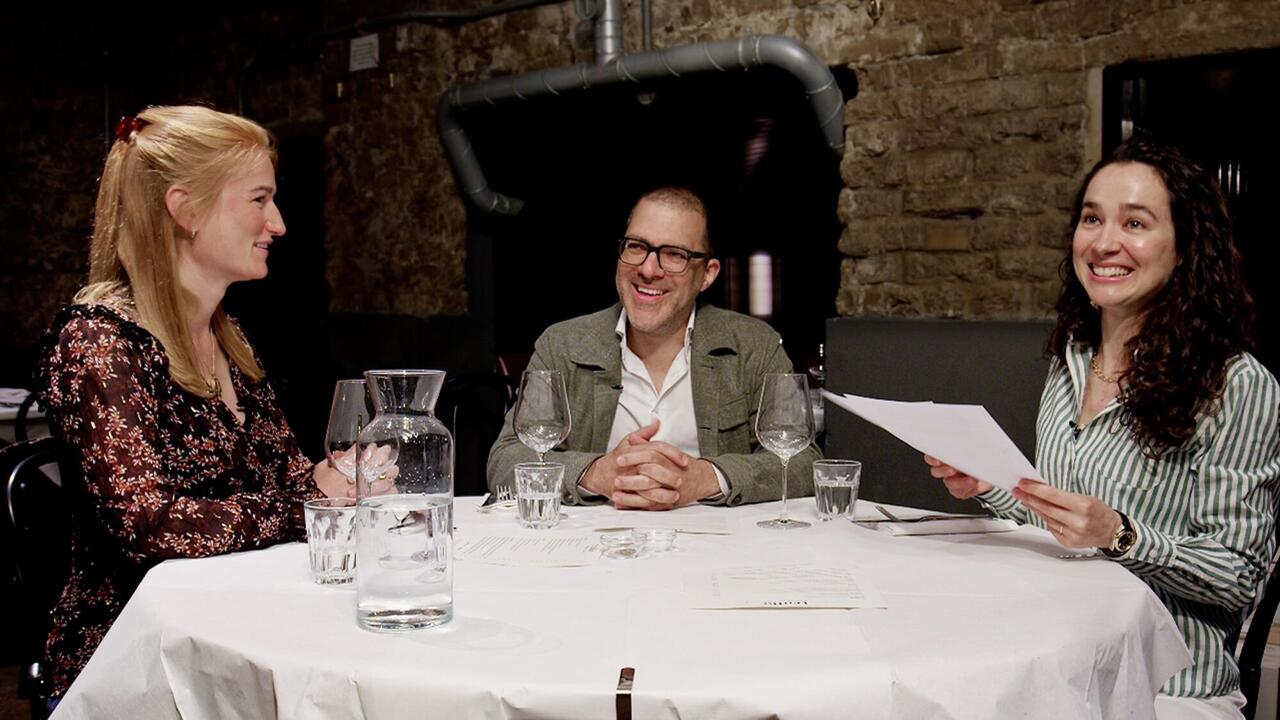’Grief is a Form of Insanity’: Dodie Bellamy on Writing through Loss
In a new collection of essays, the writer considers art, mortality and the death of her husband, Kevin Killian
In a new collection of essays, the writer considers art, mortality and the death of her husband, Kevin Killian

Andrew Durbin: Your new collection of essays, Bee Reaved, is divided into two sections – ‘Here’ and ‘Where’ – that mark the passing of your husband and collaborator of more than 30 years, the poet Kevin Killian. Can you speak a little about how this book came together?
Dodie Bellamy: Semiotexte(e) had agreed to publish a new collection of my essays before Kevin died. Kevin suggested I call the collection The Feraltern – a mashing together of ‘feral’ and ‘altern’. I came up with the term in an essay I wrote in 2013 about the poet Diane di Prima. One of the big problems with that was, as much as the title suits my writing practice, the essay on Di Prima isn’t that good, and I was dreading rewriting it to bring it up to standard.
Before Kevin died in 2019, I’d agreed to write a piece of ‘experimental fiction’ for an exhibition catalogue to accompany Christina Ramberg’s show, ‘The Making of Husbands’, at KW Institute for Contemporary Art in Berlin. It seemed foolhardy, a month or two into my widowhood, to write anything at all, but the project was compelling, so I wrote about my grief in the third person via a character I named Bee Reaved, as seen through the lens of Ramberg’s art. From my experience, grief is a form of insanity, and I was totally nuts, an alien creature with only one foot on the ground. The name was inspired by a visit I made to Los Angeles right after Kevin died. I stayed with the artist and writer Matias Viegener, and all weekend Matias kept calling me ‘the beREAVED’. The silliness of that was exactly what I needed to jolt me into laughter.

AD: How did you develop Bee Reaved’s voice?
DB: There are three pieces in which Bee Reaved is the protagonist, written over the course of a year, and I was hoping that, as I returned to her over time, the writing would track the progression of my mourning. The original ‘Bee Reaved’ is so alienated that she can’t even name her dead husband. She refers to him simply as ‘the other one’. In the second piece, ‘Plague Widow’, we’re still in the third person, but Kevin is referred to by name. Bee Reaved is thriving because her tenderness has been suppressed. The piece explores the rage and violence of making do. And, finally, ‘Chase Scene’ is a 60-page intimate letter addressed to Kevin. The first person and tenderness return, but it’s devastating. Writing that piece, which took five months, nearly destroyed me.
AD: Did you return to Kevin’s own writing while you were working on Bee Reaved? As I experienced the book (admittedly, in a teary emotional trance), I kept hearing him whispering in your prose.
DB: I trawled through his writing folder on the computer, which contains poems and his biography of Jack Spicer, Poet Be Like God (1998) – among many other things. His writing was the one place where I could allow myself to be close to him. I kept returning to the cats series in Action Kylie (2008) and to the poem ‘Who’, which I saw him read many times in that campy, show-stopping way he had, and which never ceased to awe me. Much of his genius came from his willingness to make a fool out of himself, to assume a sort of visionary monstrousness. There’s so much about death in the poems, including imagining his own death, it was like he was speaking to me from the beyond.

AD: Bee Reaved coincides with the republication of your novel, The Letters of Mina Harker (1998/2021). That book now seems like something of a prequel. In it, Mina Harker – the wife of Jonathan Harker in Bram Stroker’s Dracula (1897) – lives in San Francisco in the 1980s. She sounds a lot like you. She corresponds with your friends; she falls in love with (and marries) Kevin. How much was the novel on your mind while you wrote Bee Reaved?
DB: Since it’s hard to drum up enthusiasm for reprints, Semiotext(e) proposed publishing the books together, hoping that the new collection would help bring attention to Mina. Originally, there was no planned thematic connection between the books. When it was first published, Mina made an impact in the very underground literary world I was operating in at the time, and am pretty much still operating in. But, within a couple of years, the indie poetry press that published it – Hard Press – went out of business and, while not totally forgotten – some diehard fans still teach it – the book languished in obscurity.
Once I decided to focus the collection on Kevin and our marriage, the two books increasingly resonated for me, and Mina definitely influenced decisions I made in the material for Bee Reaved. Mina is an epistolary novel in which all the letters, in their original versions, were written to real people and mailed. When I first began the project, some people wrote back. Kevin and Mina had an intense correspondence, which was instrumental in pushing our relationship from a friendship into a romance. So, the ending of Bee Reaved speaks to both Mina and those early letters, which aren’t part of the novel. Mina begins with Dodie and Kevin’s wedding day, while Bee Reaved tracks his death and aftermath. I took a bit of language from the final paragraph of Mina and worked it into the final paragraph of Bee Reaved, tying together the two books with a little bow.

AD: Could you imagine a future for Bee Reaved beyond this collection? Will we hear from her again?
DB: You never know for sure, but I think I’m done with her. Writing through her allowed me to move beyond the terrible numbness and shock of grief and to re-establish a heart connection with Kevin. I’d like to keep that private for now. But I am working with the photographs Alice Shaw took of the hundreds of people who attended his memorial at the San Francisco Museum of Modern Art. In that project, I hope to explore grief from a community perspective.
Main image and thumb: Dodie Bellamy, Bee Reaved (detail), book cover, 2021. Courtesy: Semiotext(e)






















